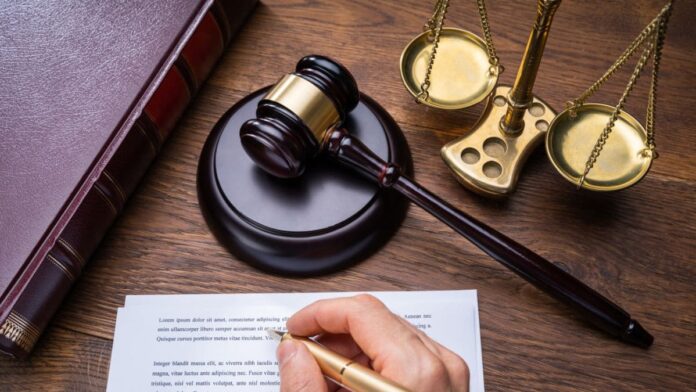Introduction
Professional disloyalty, a crime primarily committed by lawyers and solicitors, stands as a violation regulated by Articles 465 to 467 of the Penal Code. In this comprehensive exploration, we will dissect the three main actions that encompass professional disloyalty, distinguishing it from other legal offenses and shedding light on its complexities.
What is Professional Disloyalty? 4 Practical Examples
Professional disloyalty, classified as a crime, entails actions by legal professionals, specifically lawyers and solicitors. Failure to adhere to professional standards in their capacity as representatives of justice can result in legal consequences. This article delves into the nuances of professional disloyalty, examining its legal facets through three principal actions outlined in the Penal Code.
Understanding the Actions: Professional Disloyalty Analyzed
Professional disloyalty manifests through both action and omission. Unlike crimes where real harm must be proven, professional disloyalty is a crime of means, not results. Familiarity with these legal concepts is essential to grasp the implications of professional disloyalty, and our article on the Theory of Crime provides additional insights.
As a crime specific to certain individuals, professional disloyalty is a special offense. Lawyers and solicitors, meeting the requirements of their profession in terms of education and registration, are the only individuals eligible to commit this offense. The penalties for professional disloyalty include special disqualification, emphasizing the gravity of breaching professional trust.
Actions Constituting Professional Disloyalty
The Penal Code delineates three primary actions constituting professional disloyalty:
- Disloyalty through Destruction of Documents: This action involves the destruction, disablement, or concealment of documents or proceedings within a legal procedure. It is crucial to note that only lawyers or solicitors can be held accountable for this action, and the documents or proceedings in question must be related to their professional knowledge. The penalty for this type of disloyalty includes imprisonment for six months to two years, a fine ranging from seven to twelve months, and special disqualification.
- Disloyalty through Disclosure of Secrets: Unlike breaching professional secrecy, this offense pertains to revealing legal proceedings declared secret by a judge or tribunal. The penalties for this offense include a fine and disqualification, without the possibility of imprisonment. Notably, judges, prosecutors, legal administrators, and justice system officials can also commit this action. The penalty for these individuals aligns with that of Article 417, covering the disclosure of secrets related to their position, except it is in the upper half.
- Disloyalty to the Detriment of the Client: Regulated by Article 467, this action encompasses two potential criminal acts:a) Representing Two Adverse Parties Without Consent: This occurs when a lawyer represents two parties with conflicting interests in the same matter without obtaining the necessary consent. For instance, an attorney defending one party accepts representation of the opposing party without informing or seeking consent from the first.b) Harming the Interests of the Client: This involves a lawyer, through action or omission, causing harm to the interests of their represented client. For example, an attorney in a divorce proceeding, tasked with securing joint custody for the children, mistakenly advocates for exclusive custody for the other party. This objectively harms the client’s interests. Additionally, this disloyalty can occur through gross negligence, resulting in reduced penalties.
Practical Examples
Example 1: Disloyalty through Destruction of Documents An attorney discovers crucial evidence in a civil case and decides to destroy essential documents to gain a strategic advantage. By doing so, the lawyer violates the loyalty owed to justice and the client, constituting the crime of professional disloyalty. This action, falling under the destruction of procedural documents, the first of the discussed actions, carries penalties of imprisonment for six months to two years, a fine of seven to twelve months, and special disqualification.
Example 2: Disloyalty to the Detriment of the Client – Harming the Client’s Interests through Gross Negligence During a divorce trial, a lawyer, due to gross negligence, presents incorrect allegations from another case, resulting in harm to the client’s interests. This disloyalty, committed through gross negligence, incurs reduced but still significant penalties. To explore ways to mitigate penalties, refer to our article on Attenuating Circumstances.
Example 3: Disloyalty through Destruction of Documents – Action by Omission A solicitor receives relevant documents for a case but, overwhelmed by the daily volume of paperwork, neglects the duty to submit them to the court. Although the documents are not physically destroyed, the omission constitutes an act of professional disloyalty, falling under the category of concealing documents. In this case, both direct actions and omissions are considered punishable, and the penalty includes special disqualification.
Example 4: Disloyalty with Other Offenses A lawyer, practicing through a law firm, receives an offer from a competitor. Anticipating a departure, the lawyer decides to secure some cases that will be litigated against colleagues by destroying essential documents to eliminate evidence that could complicate the cases. The question arises: Is it still professional disloyalty if the lawyer does not intervene in the cases as an attorney? The answer is yes, as the Supreme Court stated in its ruling on November 23, 2022, requiring only that the individual be a practicing attorney.
Conclusions
In navigating the terrain of professional disloyalty, we have uncovered the intricacies surrounding the conduct of lawyers and solicitors. What have we learned? Firstly, that professional disloyalty encompasses both deliberate actions and negligent omissions. Secondly, we have explored the three fundamental actions: destruction of documents, disclosure of secrets, and harm to the client, each with its own implications and penalties.
From the outset, we questioned the legal consequences of this transgression and found that special disqualification is the hallmark sanction for these offenses, indicating the severity of such behavior in the legal profession.
In summary, professional disloyalty is not merely an abstract idea in the penal code; it is a crime aimed at preserving trust in the legal system. Through practical cases and detailed analysis, we have unraveled the complexity of this offense, providing an in-depth understanding of its practical manifestations.


